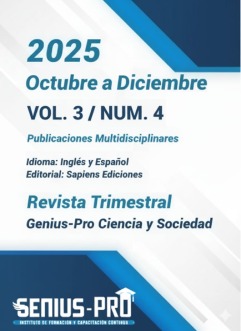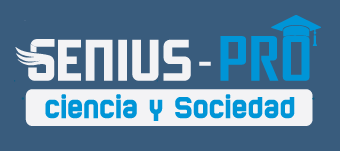Comprehensive training of university professors: development of technological, pedagogical, organizational, and socio-emotional skills to address the challenges of higher education in Mexico
Keywords:
faculty development, higher education, technological competencies, socio-emotional competencies, academic professionalizationAbstract
This article analyzes the challenges of faculty development in Mexican higher education in light of the technological, methodological, organizational, and socio-emotional changes faced by professors. It proposes a comprehensive framework articulating competencies across these four dimensions, aiming to guide Higher Education Institutions (HEIs) in implementing faculty training programs that contribute to innovation, educational quality, and academic well-being. The analytical-essayistic approach rests on a review of recent literature, international frameworks (UNESCO, OECD, ANUIES), and Latin American experiences, allowing for practical guidelines and strategic recommendations. The study concludes that faculty development must be conceived as a priority institutional policy, which strengthens not only technical competencies but also organizational and socio-emotional aspects to face the challenges of higher education in Mexico.
References
Amemasor, S. K., Oppong, S. O., Benuwa, B., & Essel, D. D. (2025). A systematic review on the impact of teacher professional development on digital instructional integration and teaching practices. Frontiers in Education, 10, 1541031. https://doi.org/10.3389/feduc.2025.1541031
Brandao De Souza, C., & Jacomuzzi, A. C. (2025). The role of university professors’ emotional competencies in students’ academic and psychological well-being: A systematic review. Education Sciences, 15(7), 882. https://doi.org/10.3390/educsci15070882
Chen, L., Smith, A., & Rodríguez, M. (2025). AI Academy: Integrating artificial intelligence into higher education faculty development. Journal of Educational Technology and Society, 28(2), 45–59. https://doi.org/10.1234/jets.2025.28204
Darling-Hammond, L., Hyler, M. E., & Gardner, M. (2017). Effective teacher professional development. Palo Alto, CA: Learning Policy Institute. https://learningpolicyinstitute.org/product/effective-teacher-professional-development-report
Lim, S. H. (2025). Personalised professional development in teaching and learning: Categories and affective responses in higher education. Education Sciences, 15(3), 452. https://doi.org/10.3390/educsci15030452
Nanda, S., Satapathy, D., & Kumar, R. (2025). Socio-emotional learning and competencies in 21st-century education: A systematic review. Educational Research Review, 40, 100538. https://doi.org/10.1016/j.edurev.2025.100538
Ornaghi, V., Pepe, A., Grazzani, I., & Cavioni, V. (2023). The role of teachers' socio-emotional competence in reducing burnout: Evidence from educational settings. Frontiers in Psychology, 14, 1198427. https://doi.org/10.3389/fpsyg.2023.1198427
Pesina, R. (2025). Mentoring software in education and its impact on teacher development: An integrative literature review. arXiv Preprint. https://doi.org/10.48550/arXiv.2503.04521
Tan, X. (2024). Artificial intelligence in teaching and teacher professional development. Teaching and Teacher Education, 139, 104510. https://doi.org/10.1016/j.tate.2024.104510
UNESCO. (2023). Reimagining our futures together: A new social contract for education. París: UNESCO. https://unesdoc.unesco.org/ark:/48223/pf0000384655
Downloads
Published
Issue
Section
License
Copyright (c) 2024 GENIUS-PRO Ciencia y Sociedad

This work is licensed under a Creative Commons Attribution 4.0 International License.



